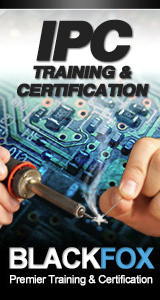Printed Circuit Board Assembly & PCB Design Forum
SMT electronics assembly manufacturing forum.
- SMTnet
- »
- Electronics Forum
- »
- Board wash/water heater
Board wash/water heater
Views: 3288
![]() I'm working on installing a batch washer, and am looking int...
- Feb 11, 2013
by
robgd3
I'm working on installing a batch washer, and am looking int...
- Feb 11, 2013
by
robgd3
![]()
![]()
![]() Google => tankless water heater deionized
BR, davef
...
- Feb 12, 2013
by
davef
Google => tankless water heater deionized
BR, davef
...
- Feb 12, 2013
by
davef
![]()
![]()
![]() Thanks, Dave.
One thing that's beginning to concern me ...
- Feb 13, 2013
by
robgd3
Thanks, Dave.
One thing that's beginning to concern me ...
- Feb 13, 2013
by
robgd3
![]()
![]()
![]() Yeh, I love the idea of tankless, but ...
Tell ya what, w...
- Feb 14, 2013
by
davef
Yeh, I love the idea of tankless, but ...
Tell ya what, w...
- Feb 14, 2013
by
davef
![]()
![]()
![]() First, it's not a simple as thinking just about your electri...
- Feb 22, 2013
by
davef
First, it's not a simple as thinking just about your electri...
- Feb 22, 2013
by
davef
![]()
![]()
![]() Hi robgd3, your DI system installer is right in his recommen...
- Mar 26, 2013
by
Nick Jamison
Hi robgd3, your DI system installer is right in his recommen...
- Mar 26, 2013
by
Nick Jamison
![]()
![]()
- SMTnet
- »
- Electronics Forum
- »
- Board wash/water heater








